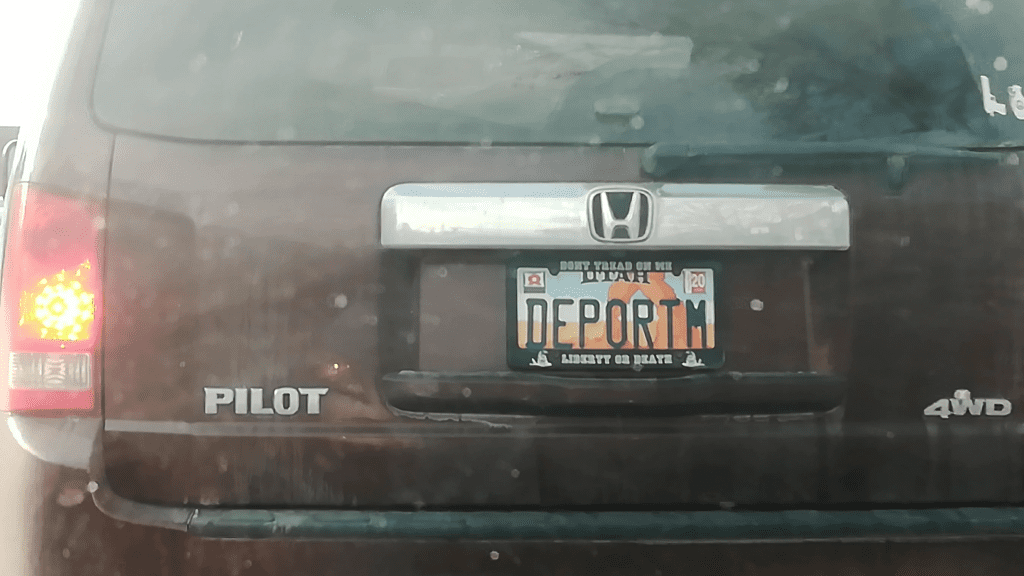In a world where personal expression often collides with social norms, a recent incident in Utah has ignited a heated debate. A vanity license plate that reads “DEPORTM” has sparked outrage on social media, leaving many residents and lawmakers questioning the approval process behind such controversial messages.

This article delves into the details of this viral story, exploring the implications, the official response, and the broader discussions surrounding the regulation of personalized license plates.
The controversy began when a high school English teacher, Matt Pacenza, spotted the “DEPORTM” license plate on a car and quickly took to Twitter to express his disgust. His tweet, which questioned how such a plate could have been approved by the Utah Driver License Division, quickly gained traction, with over a hundred people weighing in on the issue.
Commenters were quick to voice their concerns, with one noting that the plate “should never have been accepted by the DMV.” The reaction highlighted the widespread belief that the message conveyed on the plate was not only offensive but also potentially discriminatory.
In response to the social media uproar, the Utah Department of Motor Vehicles (DMV) provided some insight into the approval process. Tammy Kikuchi, a public information officer, confirmed that the controversial plate had, in fact, been approved back in 2015.
The DMV’s guidelines state that any combination deemed “vulgar, derogatory, profane, or obscene” is prohibited, especially those expressing contempt for race, religion, or political affiliation. However, the “DEPORTM” plate had apparently slipped through the cracks, leading to an investigation into the approval process.
The backlash has not been limited to social media. State Senator Luz Escamilla expressed her concerns about the license plate, describing it as offensive and scheduling the issue for review at the Utah Legislature’s administrative rules review committee meeting.
Representatives from both the Tax Commission and the DMV were expected to attend the meeting, where they would explain the criteria used to determine offensive content and how this particular plate was approved in the first place.
In an effort to provide transparency, the DMV also shared a list of rejected vanity plate names, which included entries such as “SAUSAGE,” “NSTYHOE,” and “W1NGMAN.” This glimpse into the approval process highlights the challenges faced by the department in striking a balance between free speech and community standards.

The backlash against the “DEPORTM” plate underscores the importance of thorough vetting processes for vanity license plates. As the investigation continues, the Utah DMV may face increased scrutiny over its approval criteria, with the goal of preventing similar controversies from arising in the future.
The viral story of the “DEPORTM” license plate in Utah has sparked a nationwide debate on the delicate balance between individual expression and social responsibility. The outrage expressed on social media and by state lawmakers serves as a wake-up call for stricter regulations and more robust approval processes for personalized license plates.
As the investigation unfolds, the Utah DMV and policymakers will need to navigate this complex issue carefully, ensuring that the fundamental rights of free speech are protected while also upholding community values and preventing the spread of offensive or discriminatory messages.


